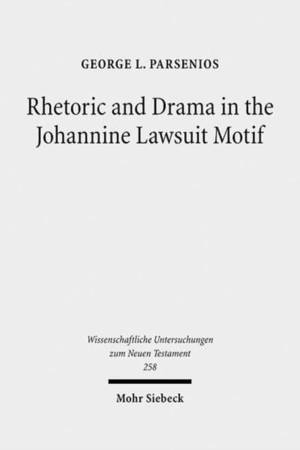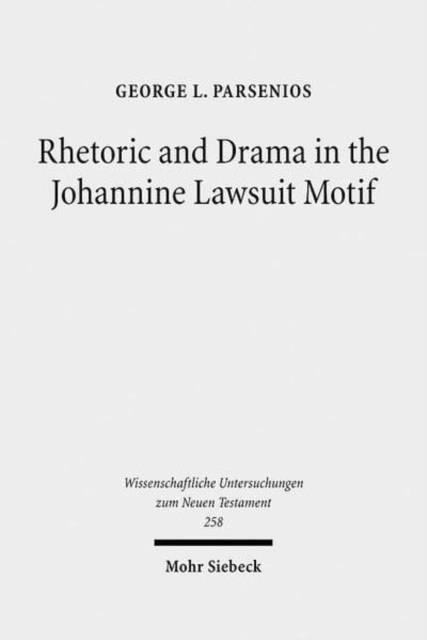
- Retrait gratuit dans votre magasin Club
- 7.000.000 titres dans notre catalogue
- Payer en toute sécurité
- Toujours un magasin près de chez vous
- Retrait gratuit dans votre magasin Club
- 7.000.000 titres dans notre catalogue
- Payer en toute sécurité
- Toujours un magasin près de chez vous
Description
George L. Parsenios explores the legal character of the Gospel of John in the light of classical literature, especially Greek drama. Johannine interpreters have explored with increasing interest both the legal quality and the dramatic quality of the Fourth Gospel, but often do not connect these two ways of reading John. Some interpreters even assume that the one approach excludes the other, and that John is either legal or dramatic, but not both. Legal rhetoric and tragic drama, however, were joined throughout antiquity in a complex pattern of mutual influence. To connect John to drama, therefore, is to connect John to legal rhetoric, and doing so helps to see even more clearly the pervasiveness of the legal motif in the Gospel of John. Tracing the legal character of seeking in Sophocles' Oedipus Rex, for example, sheds new light on the legal character of seeking in the Fourth Gospel, especially in the enigmatic comment of Jesus at John 8:50. New insights are also offered regarding the evidentiary character of the signs of Jesus, based on comparison with Aristotle's comments about signs and rhetorical evidence in both the Poetics and Rhetoric, as well as by comparison with plays by Aeschylus, Sophocles and Euripides. To call the signs of Jesus evidence, however, does not remove them from the dialectical tension inherent in Johannine theology. If the signs are evidence, they are evidence in a world in which the basis of forming judgments has been problematized by the appearance of the Word in the flesh.
Spécifications
Parties prenantes
- Auteur(s) :
- Editeur:
Contenu
- Nombre de pages :
- 165
- Langue:
- Anglais
- Collection :
- Tome:
- n° 258
Caractéristiques
- EAN:
- 9783161502620
- Date de parution :
- 31-12-10
- Format:
- Livre relié
- Format numérique:
- Genaaid
- Dimensions :
- 153 mm x 229 mm
- Poids :
- 430 g







